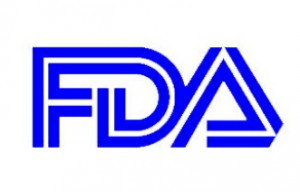When I was studying food science at the University of Minnesota, professors often mentioned the GRAS list. That list, which lists food additives that are “Generally Regarded as Safe“, is used by manufacturers to choose additives to use when they are developing products. Back then, most additives on the GRAS list were included because they had been in circulation for a long time with no detectable harm to humans. But things have changed. Now additive companies submit GRAS designations as determined by their own employees or consulting firms they have hired.
 A new study published in the Journal of the American Medical Association alleges that people selected by manufacturers to make GRAS determinations have “conflicts of interests between their obligations to ensure that the use of the additive is safe and their financial relationships to the company.” In fact, the study states that “in past decades, the FDA made many formal GRAS determinations, but the agency has made very few such determinations recently.”
A new study published in the Journal of the American Medical Association alleges that people selected by manufacturers to make GRAS determinations have “conflicts of interests between their obligations to ensure that the use of the additive is safe and their financial relationships to the company.” In fact, the study states that “in past decades, the FDA made many formal GRAS determinations, but the agency has made very few such determinations recently.”
The study measured the number of GRAS notices submitted to the FDA and the frequency of the types of relationships between the person who made the GRAS determination and the additive manufacturer. The study authors also looked at the frequently of participation on GRAS panels by individuals, and the number of GRAS safety determinations identified by the FDA that weren’t submitted to the agency.
Researchers found that for the 451 GRAS notifications made between 1997 and 2012, 22.4% were made by an employee of an additive manufacturer. Thirteen percent were made by an employee of a consulting firm hired by the manufacturer, and 64.3% by an expert panel selected by either the manufacturer or a consulting firm. A standing expert panel selected by a third party made none of the safety assessments.
What seems strange is that after a manufacturer has determined that an additive should be added to the GRAS list, they are not required to notify the FDA. In 1997, the FDA phased out the step of formally approving the manufacturer’s decision. When the agency disagrees with a company’s GRAS decision, it sends a letter to the company saying there is “insufficient basis” for the GRAS determination.
The “safety” of an additive is defined by the FDA to mean “a reasonable certainty in the minds of competent scientists that the substance is not harmful under the intended conditions of use.” The safety of the additive must also be “generally recognized”, which requires “common knowledge about the substance throughout the scientific community knowledgeable about the safety of substances.” The problem is that the potential health effects of additives can take years to manifest and can be difficult to identify. For instance, trans fats were included on the GRAS list before scientists determined they are harmful.
The study concludes that “the lack of independent review in GRAS determinations raises concerns about the integrity of the process and whether it ensures the safety of the food supply, particularly in instances where the manufacturer does not notify the FDA of the determination.” The GAO said in 2010 that the FDA should strengthen its oversight of the GRAS program and should minimize the potential for conflict of interest in GRAS determinations.




